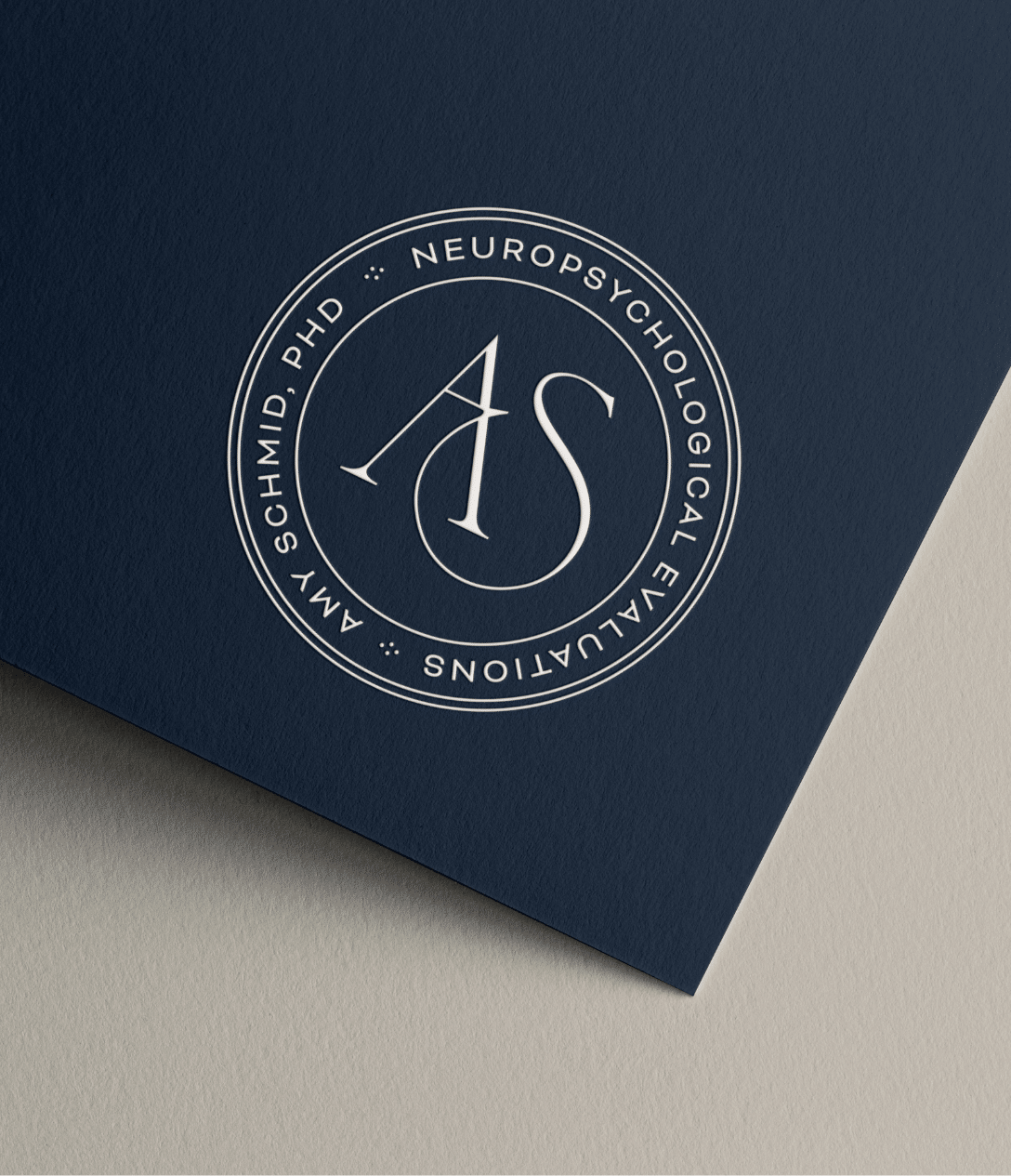PEDIATRIC
NEUROPSYCHOLOGY


While I support a variety of families, my specialty is diagnosing and identifying the strengths and challenges of patients who are neurodiverse and may have complex behavioral and medical histories.

These are tough questions to hear from your child. They’re the ones that keep you up at night. You’ve spent far too much time Googling symptoms and potential diagnoses, but even with all of the doctor visits and teacher meetings, you still feel like you’re missing something. As a diagnostician, I’m here to give you answers.
HOW TESTING WORKS
You might be wondering: how is my child going to tolerate hours of testing? That’s fair. Testing is a lot of work and it won’t be the most fun they’ve ever had. But I enjoy creating a comfortable environment that engages your child and might even make them laugh. Kids often tell me, “This wasn’t as bad as I thought it was going to be.”

Dr. Schmid graduated with her Ph.D. in School Psychology from Columbia University and completed her postdoctoral fellowship in pediatric neuropsychology at Dartmouth College/Dartmouth-Hitchcock Medical Center. She then spent several years as a research director on the Wechsler test development team developing the WISC-V: the most widely used children’s IQ test in the world. She’s worked extensively in psychological research and psychometrics. In addition to these milestones, she’s held vital roles as an in-home therapist for autistic children, a special education high school teacher, a live-in staff worker at a shelter for unhoused youth, and an individual and group therapist.
Additionally, Dr. Schmid brings to her work a decade of experience as a mother. She understands the challenges of raising children and brings compassion and a nonjudgmental perspective to her work with families.
A full neuropsych evaluation is helpful when you’re ready to bring in an expert who can explain exactly what’s happening in your child’s brain. The process takes approximately 6-8 weeks to complete and begins with a parent intake session. All work is conducted in person, as allowable.
We’ll first meet, virtually or in person, to discuss your child’s in-depth developmental history. You’ll have all the time you need to share your concerns and allow me to understand what questions are the most important to be answered.
I can be most helpful when I understand what your child’s school context is like. As a silent observer I’ll be able to see what your child is doing during class, how they’re reacting to the teacher and assignments, and experience the classroom environment in full. This unbiased perspective is new to most families and can fill in the gaps of other information you’ve received.
We will schedule 3 to 4 weekday morning sessions, each 3-4 hours in length. During this time with your child I’ll measure all aspects of their thinking skills. If merited, I may also complete projective personality testing and test for autism spectrum disorders.
Getting a full picture from the professional team supporting your child—tutors, therapists, psychiatrists—ensures I’m not missing any critical information about them. I’ll ask for their concerns and observations, as well as what they believe your child needs. This holistic view ensures that I’m not missing anything in my understanding of your child.
This is the most important two hours of the entire evaluation. Yes, we’ll review your child’s scores, but I will also tell you in very clear terms what is happening in their brain and what I see as your most promising options. You’ll walk away with a roadmap for the next few years, knowing exactly what you can do to support them best.
In this short (15-20 minute) meeting, I’ll share with them what I found so that they feel seen and understood. It’s also a way to bring you and your child together to communicate that solutions are coming.
One school meeting is included to review testing results with other professionals central to your child’s success. This can be a teacher meeting, an IEP meeting, or another group of your choosing. Additional meetings are available for a fee.
I make every effort to also make my reports readable and action-oriented. All reports lead with a summary section that includes as little jargon as possible, so that your family and important members of your child’s life can make sense of the findings and recommendations. The summary section is followed by a longer, more in-depth discussion of tests which includes the scores and metrics necessary to meet rigorous industry standards. This ensures that you can use this document to obtain accommodations and services.

This option is best for families who know their child is struggling but have been overwhelmed with suggestions from others and hours of searching on their own. If we decide that a full evaluation is the appropriate next step, the office hours fee will be credited to your child’s testing fee.
For full evaluations, it’s best to schedule 3-6 months in advance. If you’re interested in booking an office hours appointment with me to gain clarity, insight, and a plan of action you can implement today, I recommend scheduling at least 2-3 weeks in advance.
Autism (including ADOS-2), ADHD, learning disabilities, differences, difficulty processing or remembering information, nonverbal learning disabilities, concussion-related cognitive issues, medical conditions that affect cognitive function, developmental disorders, behavioral and social interaction differences, mood and emotional issues (including depression and anxiety), and possible personality disorders.
Most of the individuals I see are between the ages of 6-21 years old, though there may be cases where testing is recommended outside of this range.
No, I do not accept private insurance. My services are available through private pay only. At the end of the evaluation, I can provide you with a superbill, which you can submit to your insurance company to request reimbursement.
The benefit of working with a solo private practitioner is that you have a single point of contact throughout the process. In this practice, I perform all evaluations, observations, and reports. I do not employ students or psychometrists in my practice in any capacity.
No, I am not a therapist; I am a testing psychologist. However, I can advise you on the best type of therapy and practice for your child, and consult my professional network to find specific clinicians with immediate availability who can treat your child.
Depending on my capacity, I do perform these tests. Please use the contact form to describe your family’s needs.
Yes. Depending on the situation, I sometimes administer ADHD-only or Autism-only evaluations. Please use the contact form to share more information about your child and your needs.
No, in Pennsylvania psychologists are not able to prescribe medication. If you are seeking a doctor who can prescribe ADHD medication, please start with a medical doctor, such as your general practitioner or psychiatrist.

